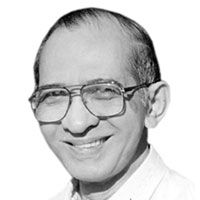Fruitless to fruitful

March 11, 2007 | 12:00am
 Throughout the centuries all the way to the present, the conversion story of the human heart, with the persistent intervention of the ever-compassionate God, inspires us to respond likewise and live out our own conversion story  the only life worth living for and dying for. Symbolized by that barren fig tree in today’s Gospel reading (Lk. 13: 1-9), the ever-faithful gardener refuses to give up until the tree finally bears fruit. Some thirty-fold. Others sixty-fold. Still others a hundredfold.
Throughout the centuries all the way to the present, the conversion story of the human heart, with the persistent intervention of the ever-compassionate God, inspires us to respond likewise and live out our own conversion story  the only life worth living for and dying for. Symbolized by that barren fig tree in today’s Gospel reading (Lk. 13: 1-9), the ever-faithful gardener refuses to give up until the tree finally bears fruit. Some thirty-fold. Others sixty-fold. Still others a hundredfold.
In his interfaith collection of conversion stories, one for each day of the year, R. Ellsberg gives us daily reflections on saints, prophets, and witnesses for our time (All Saints, 1999). From Joan of Arc to Mother Teresa, from Moses to Gandhi, and may I add from our very own: from Pedro Calungsod to Ninoy Aquino. Let me single out just two classical figures of dramatic conversion that refuse to die in our hearts and memories: St. Paul and St. Augustine.
St. Paul. Saul (his original name) was a ruthless leader in persecuting the early Christians. He searched for Christians to denounce throughout the countryside. He even heartlessly watched the young, holy Stephen stoned to death. Until that dramatic conversion incident on his way to Damascus, through that blinding intervention of his ever-forgiving God. We know the rest of the story. Paul’s zeal as a missionary was beyond words. His mission trips took him throughout the Mediterranean world  where in many towns he planted the seeds of the gospel. The apostle of the Gentiles.
As expected, he was bitterly opposed, to the point of being frequently beaten, stoned, and imprisoned. He endured shipwreck, hunger, and humiliation. But he was sustained by the love and power of the Risen Christ. In Paul’s own words: "If God is for us, who can be against us?" Finally, he was arrested by the Roman authorities. As he anticipated his fate in Rome, he felt deep, inner peace as expressed in his own words: "I have fought the good fight, I have finished the race, I have kept the faith." Early church tradition tells us that Paul was beheaded in Rome under the Emperor Nero in the year 64. Let us live by his greatest legacy to us, from his own conversion experience: "For I am sure that neither death nor life, nor angels, nor principalities, nor things present, nor things to come, nor power, nor height, nor depth, nor anything else in all creation can ever separate us from the love of God in Christ Jesus our Lord."
St. Augustine. In the year 354, Augustine was born to a wealthy family, and very early in life, he was immersed in the pleasures of this world. As a brilliant student, he reached the highest levels of academic success. Through the years, he was living an unquestioned life of sensuality, concupiscence, and intellectual arrogance. But in spite of all that for so many years, something inside him seemed to be searching for something else, something more. He even got involved with the Manichean religious doctrine of dualism. This explained the existence of evil by separating God, the source of all good, and matter, the source of all evil. In other words, corporealism vs. spiritualism, rather than a holistic integration of body and spirit, the human person as an embodied spirit. In time, he let go of the Manichean cult and found himself a "freethinker." His Christian, widowed mother Monica kept weeping for him and praying for him. But Augustine was not attracted to Christianity and found the Bible dull and uninspiring.
But in God’s own time, Augustine met Bishop Ambrose in Milan, which turned out to be the turning point of his conversion story. Through Ambrose, the Lord Jesus intervened, and Augustine finally surrendered.
"Late have I loved you, O Beauty ever ancient, ever new, late have I loved you! You were within me, but I was outside, and it was there that I searched for you. In my unloveliness I plunged into the lovely things which you created. You were with me, but I was not with you. Created things kept me from you; yet if they had not been in you they would have not been at all. You called, you shone, and you dispelled my blindness. You breathed your fragrance on me; I drew in breath and now I pant for you. I have tasted you, now I hunger and thirst for more. You touched me, and I burned for your peace." (From "Confessions of St. Augustine").
What about your conversion story? What about mine? Let us not ambition to become Saints with a capital "S." But Christ is waiting for us to be saints with a small "s." From sinner to saint. We better hurry!
So help us, God.
BrandSpace Articles
<
>
- Latest
- Trending
Trending
Latest
Latest

By IMMIGRATION CORNER | By Michael J. Gurfinkel | 1 day ago

By FIRST PERSON | By Alex Magno | 2 days ago
Recommended




























